If you’re a fan of the Warcraft universe, you’re likely a fan of artist Alex Horley—whether you know it or not! Alex is responsible for some the most iconic visuals to come out of Blizzard in the past 15 years. From his spectacular key art for Warlords of Draenor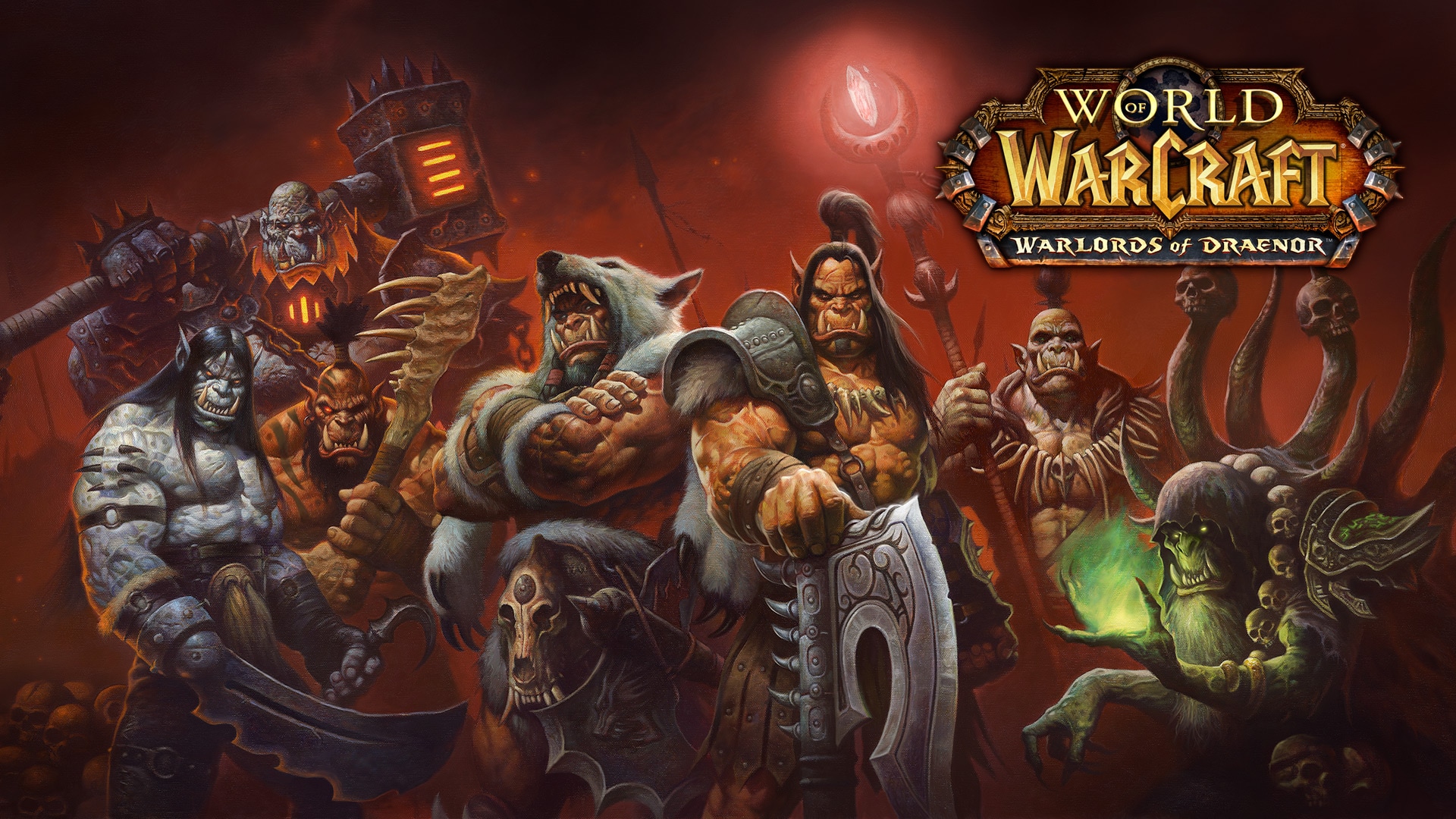
The Person
Alex, born Alessandro Orlandelli, hails from the small town of Opera outside of Milan, Italy, where he taught himself the English language by reading comic books. “I've been drawing for as long as I can remember,” Alex said. “In my very early years, all I wanted to do was draw comics. I grew up with artists like Jack Kirby and John Buscema from the bronze age of Marvel in the seventies.”
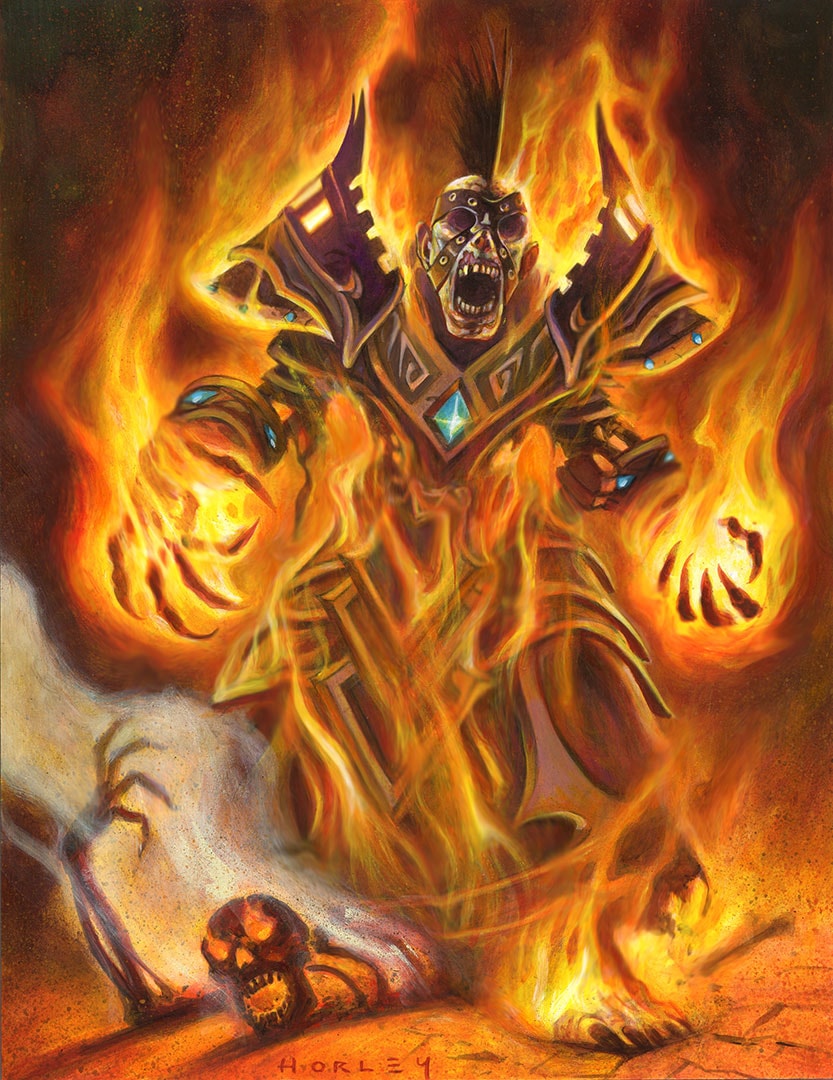
As a teenager, Alex fell in love with the work of Frank Frazetta, an American fantasy and science fiction artist and one of the most renowned illustrators of the 20th century. Alex searched bookstores for more of his work and finally came across a copy of The Fantastic Art of Frank Frazetta Volumes 1-4. Alex purchased his first set of brushes and began to paint the very next day. “Discovering the works of Frank was really the turning point for me,” said Alex. “That’s when I saw what you can really do with a brush and some paint.”
Alex is a self-taught traditional painter who mostly works with acrylics and oils. He has a proclivity for painting the bizarre and creepy, but with a heavy metal style that draws from the comic artists of his childhood (Richard Corben, Sanjulian, Gil Kane, and Gene Colan, to name a few) and the epic stories of Robert E. Howard—especially those about Conan the Barbarian. Alex has a keen eye for light, color, and composition. His paintings are known for their depictions of action, emotion, and exceptional creature and human anatomy.
When he attended the prestigious Academy of Fine Arts in Milan, there were no fantasy painting or comic book-oriented specialty classes. Any free time he had during school was spent sketching the sculptures in the Pinacoteca di Brera, painting his own fantasy style illustrations, and frequenting the local comic shops. After graduating, he assumed the pseudonym Alex Horley (now his registered trademark) because he felt that his real name would be too hard for prospective editors to remember, and that it took up too much space when signing his name to his art.
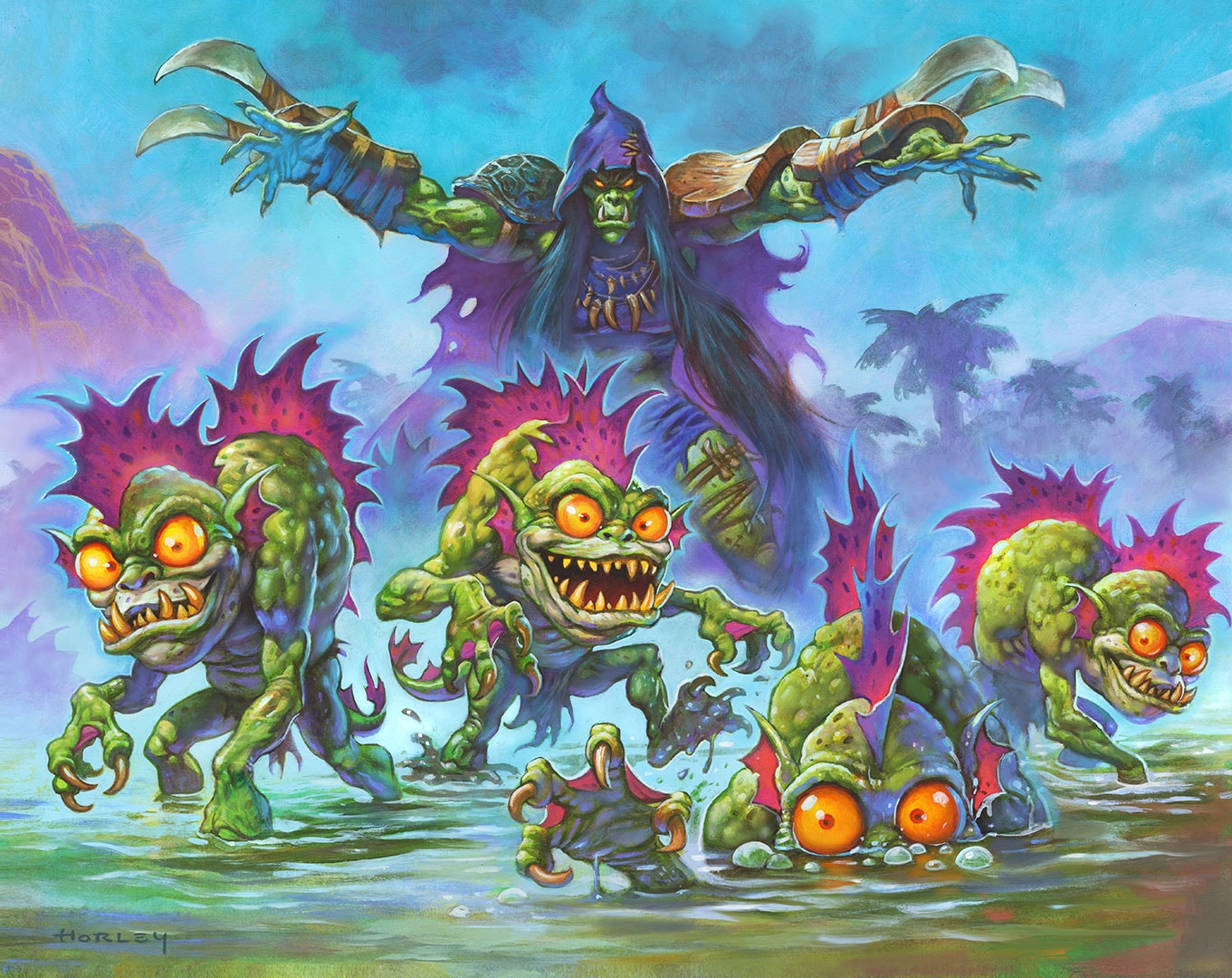
Alex would go on to create art for Heavy Metal Magazine, Marvel Comics, DC Comics, Dark Horse Comics, Hasbro, Wizards of the Coast, Disney, Rob Zombie, and Gene Simmons of KISS fame, among many other prominent companies and figures in the entertainment and fantasy space.
Alex‘s journey brought him to Blizzard in the mid-2000s to create commissioned art for the World of Warcraft Trading Card Game. “When I started working on the TCG, that same year I had a booth at San Diego Comic Con. I started seeing all these people coming by my table and you know, they were all very kind and said they love my stuff,” said Alex. “I had no idea who they were. At some point somebody told me, ‘Hey, that's Samwise! That's Frank Pearce! Those are all Blizzard people!’ Frank introduced himself and said he loved what I was doing for the TCG and invited me to be his guest at BlizzCon, I was so honored!”
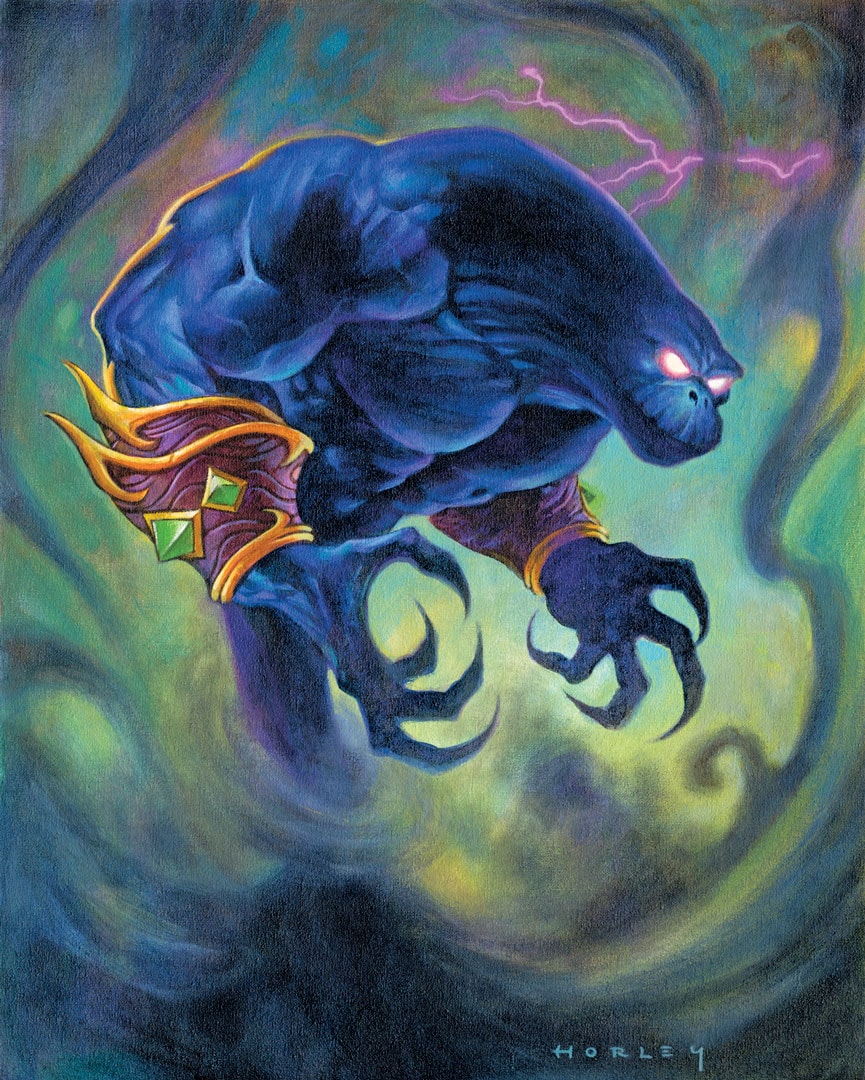
Frank Pearce, one of Blizzard’s co-founders, is the proud owner of at least seven of Alex’s paintings—over a dozen more are currently hanging throughout Blizzard Entertainment headquarters.
After attending BlizzCon, Frank invited Alex to Blizzard campus for the first time to speak with the other artists about his work on the TCG. “From the beginning, there was a mutual respect, admiration, and love for the art. At first, I was working with the Creative Development team,” said Alex. “Then a few years later I worked with Chris Robinson and Chris Metzen directly on Warlords of Draenor."
Creating the key art for the Warlords of Draenor expansion is one of the highlights of Alex’s storied career with Blizzard. Alex was the first non-Blizzard staff member approved to produce art for game packaging. “I was actually painting on campus there, bringing my paints every day. I had my table and my easel. I felt a bit like a dinosaur,” said Alex. “Everybody was working on their screens and I was there, you know, making strange noises with my easels and brushes. But it was fun! It was great to be a part of the creative process. I even got to design some of the characters, so that was very cool for me.”
The Process
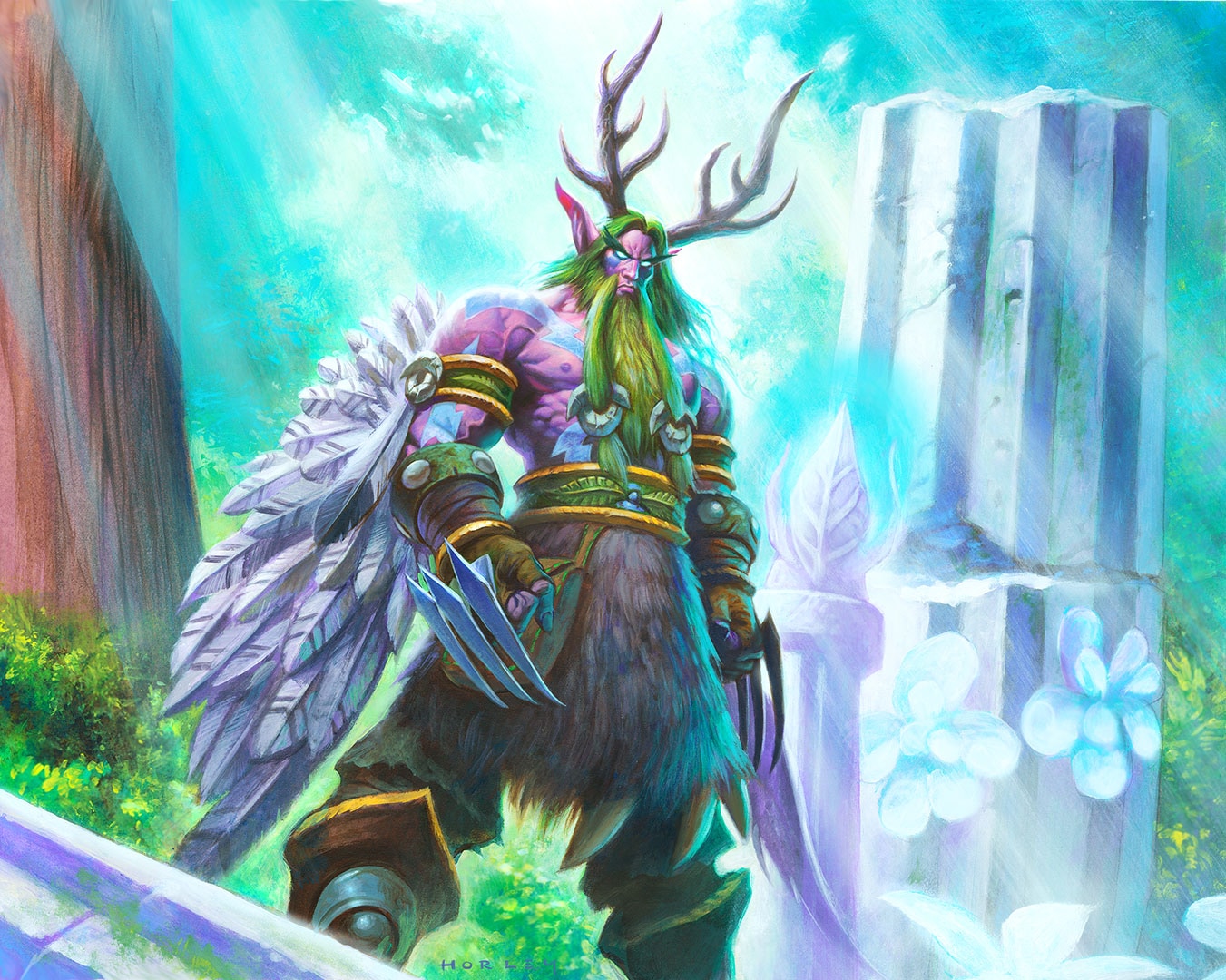
When Blizzard commissions artwork from Alex, he’s typically provided an art brief, material references, and a scene description that includes what the character is doing, how the character is supposed to look, and what the emotions of the character are in the moment. “That's where my background with comics becomes useful,” said Alex. “Then you create comics you don't just do stances, they are characters that have to tell a story. I believe comic book artists to be the closest thing to a movie director storyboarding a film. You develop and shoot the scenes, direct the characters, establish camera movements, lighting, and background. In just one image you must make them act and convey emotions in a visual way that’s understandable for the viewer. You must suggest all these things at once!”
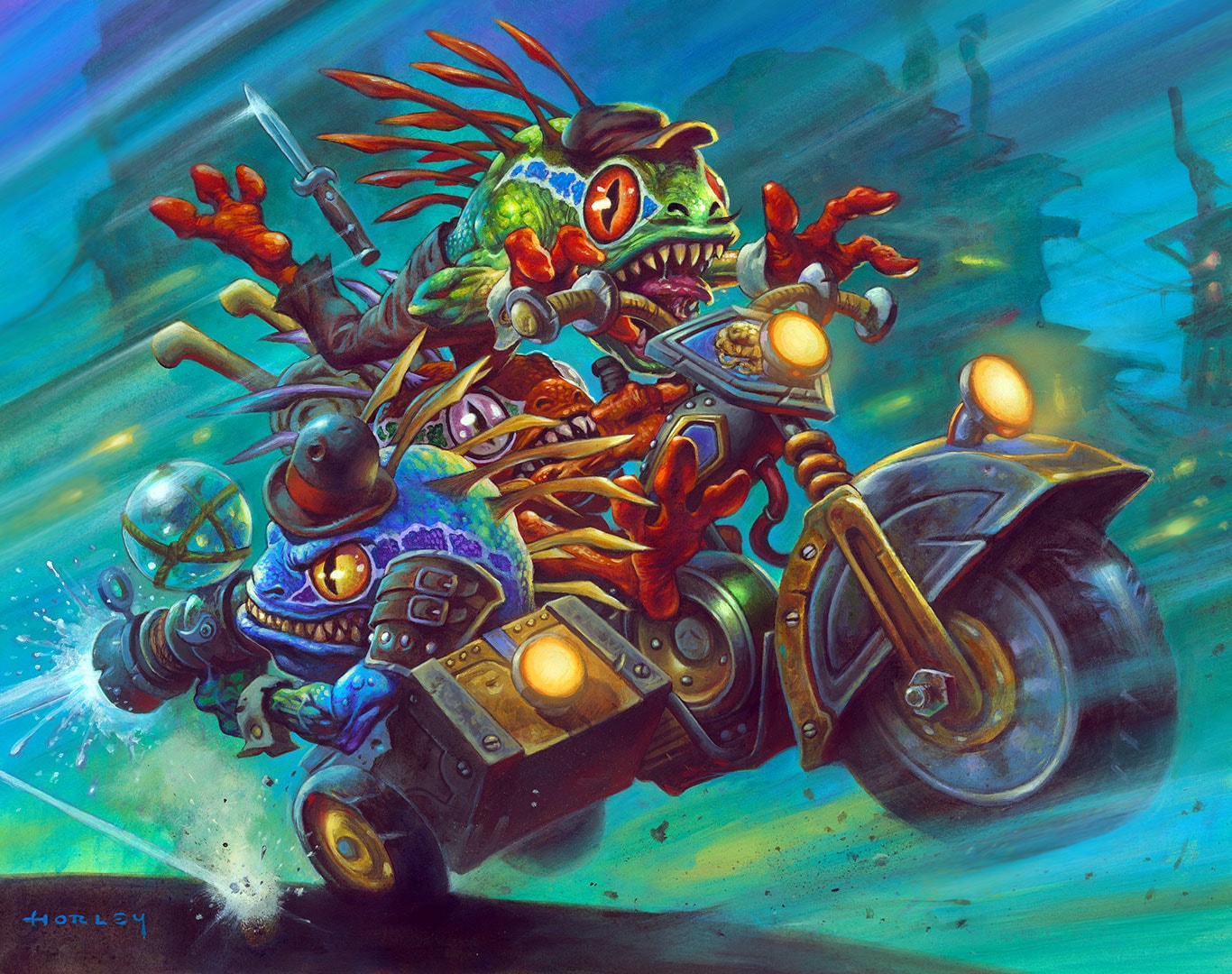
Every artist has their own formula, and Alex’s case is no different. “My process is very simple and traditional,” he said. “The sketch is the first part, and that’s where you solve most of the problems for composition and values. It’s crucial to start in a small size because you can ensure everything will work, no matter what size the final image will be viewed at. Then, I’ll blow it up large to finalize the overall balance and send in the full concept sketch for approval. Once approved, I’ll transfer the image onto the surface I’ll be working on and begin underpainting, which you do with neutral colors. Some people use grays for this, some people use browns, I use purples. For me, it's easier with purple—the way the colors work on top of each other with transparencies, it helps things move faster and helps to keep the colors brighter.”
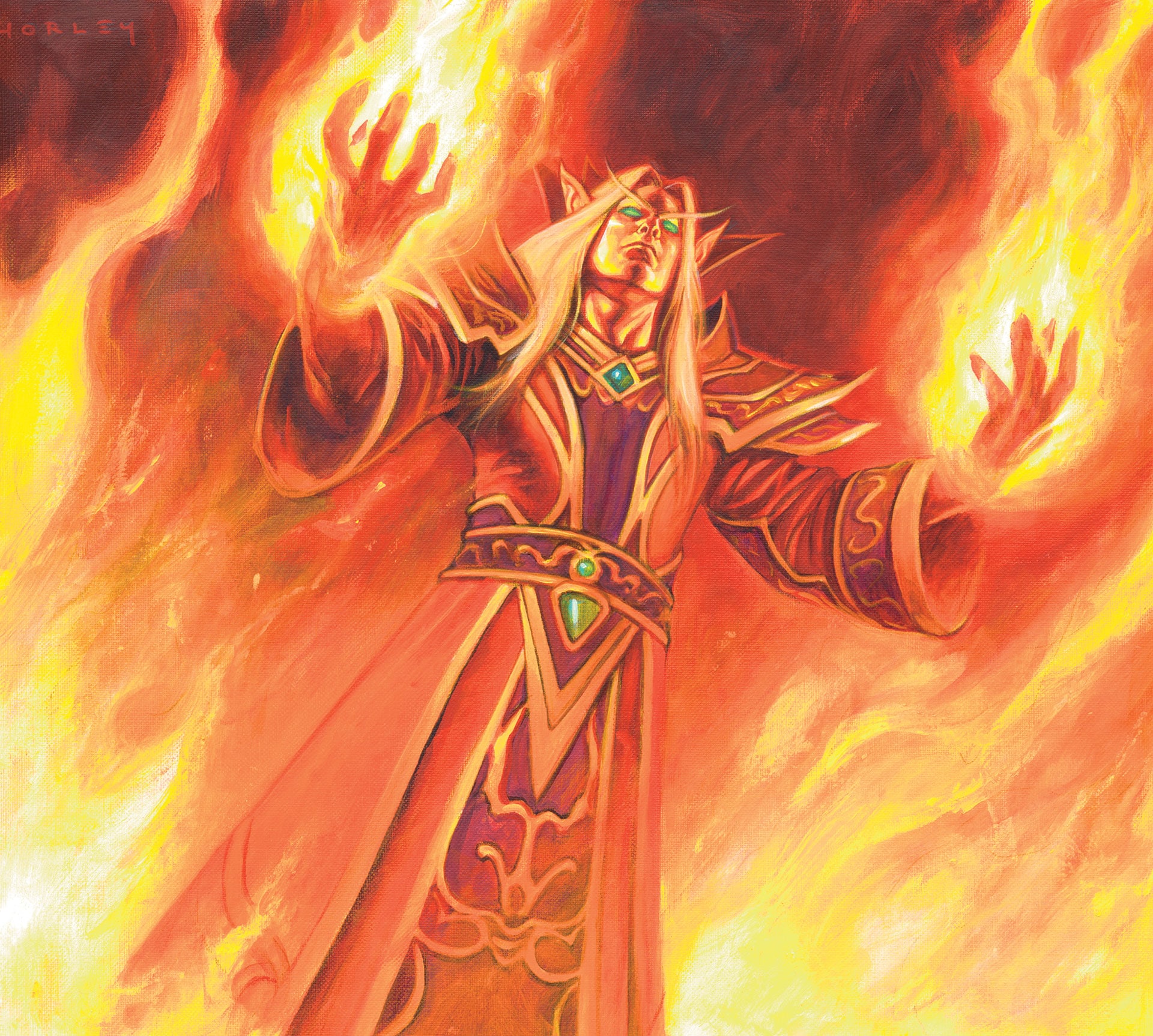
Afterwards, Alex will balance light and shadows, match backgrounds with the color palette, and make sure everything is readable. “It’s a back-and-forth kind of process,” Alex said. “You start from dark to light and then you go back and forth and tweak things. Then, I scan my painting, make any final adjustments and send it in!”
The Paintings
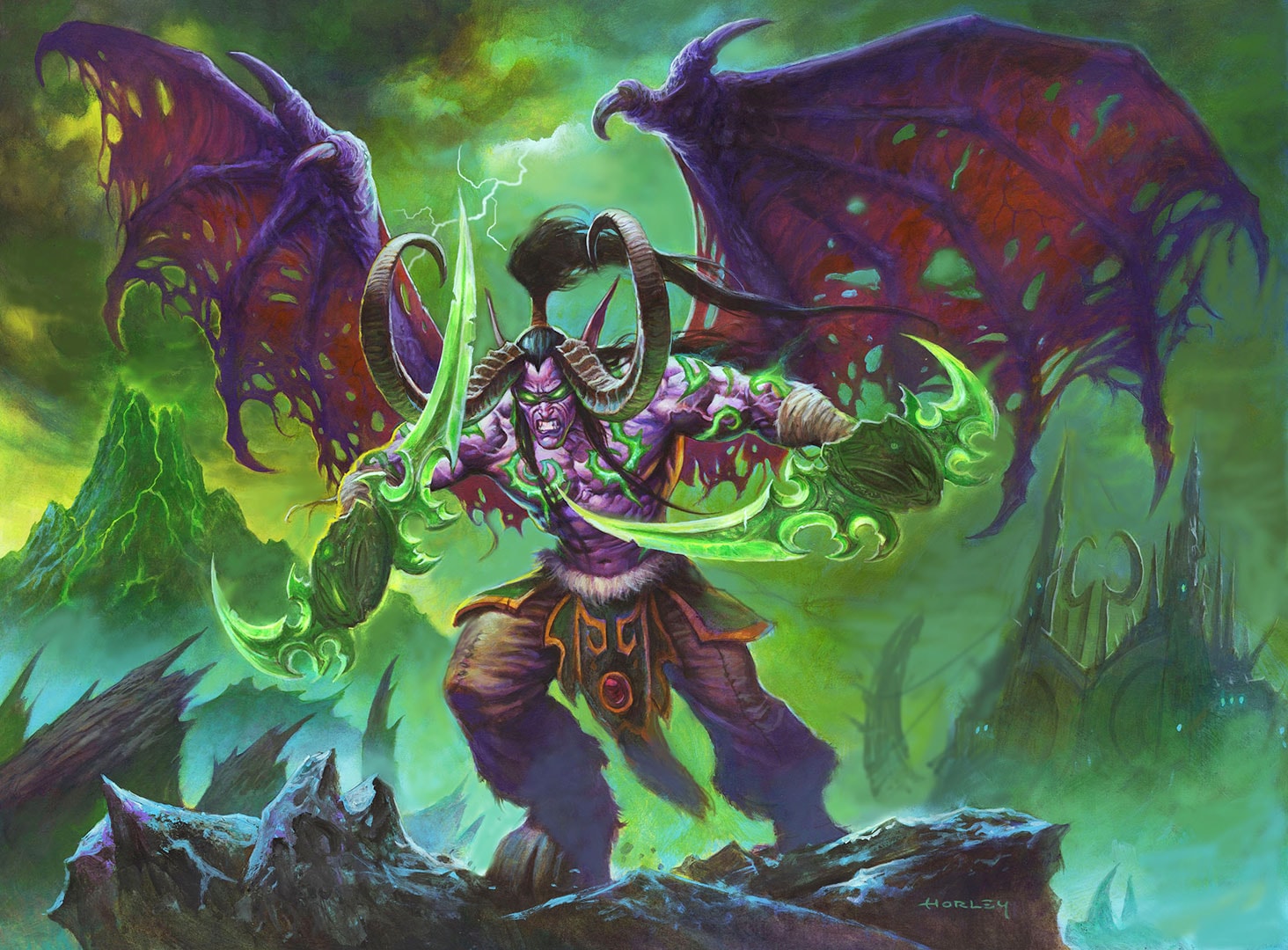
Alex has produced over 500 illustrations for Blizzard over the years and worked on nearly every franchise. You can find a lot of his influence in Hearthstone—his portrait of Malfurion, originally featured in the World of Warcraft TCG, is the primary Druid Hero portrait. The very first painting Alex did for Hearthstone itself was that of Gul’dan, the default Warlock Hero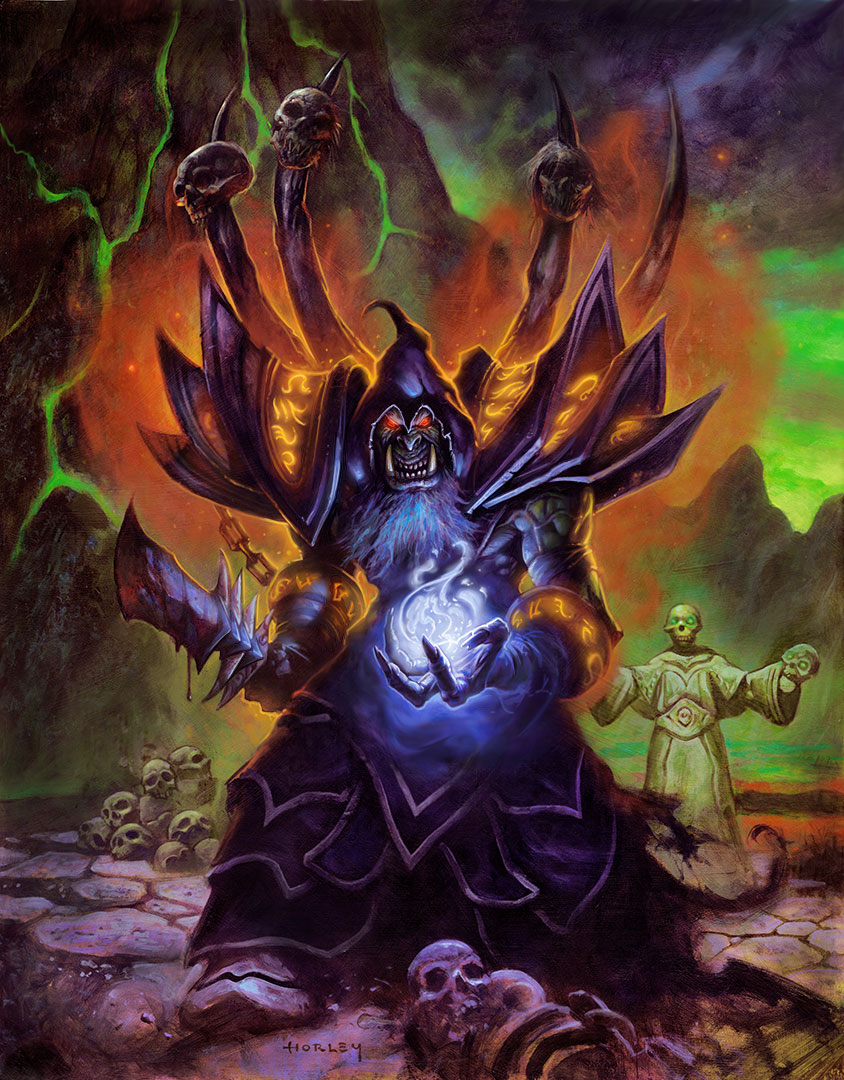
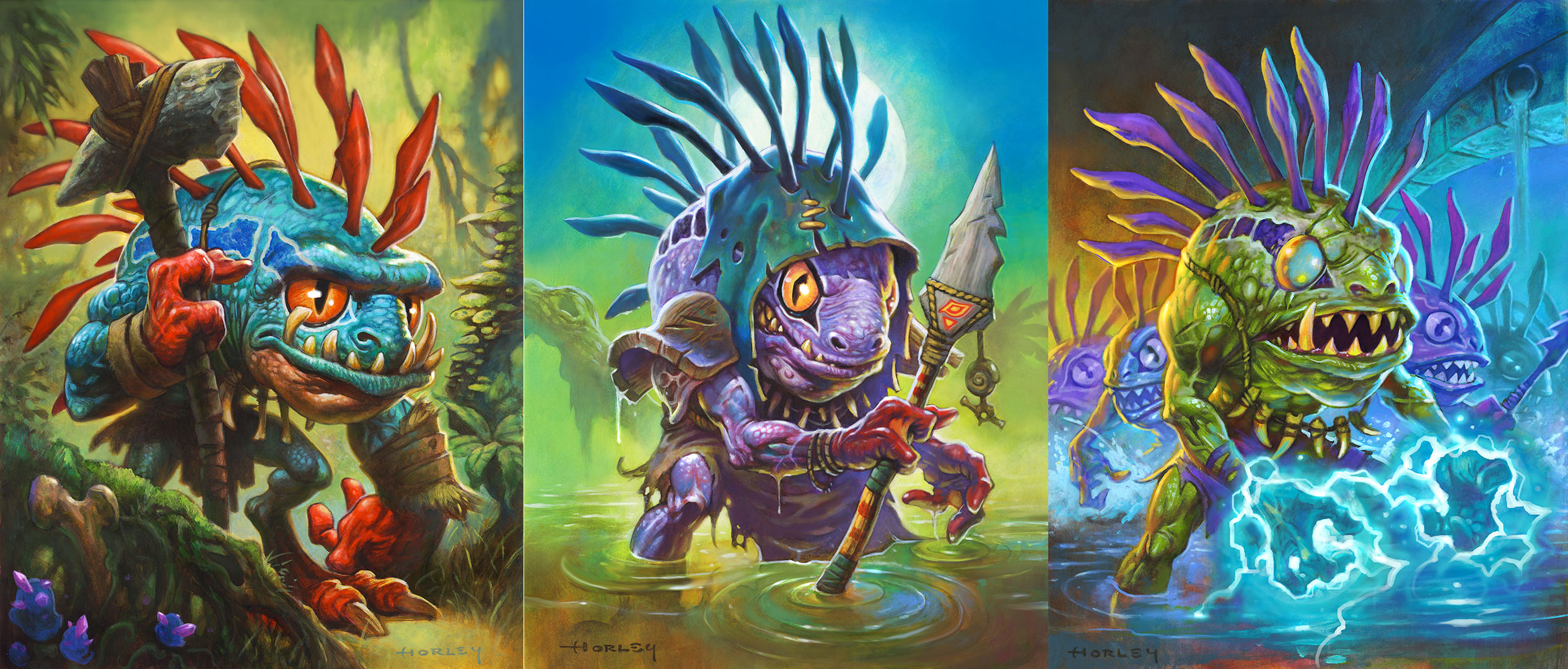
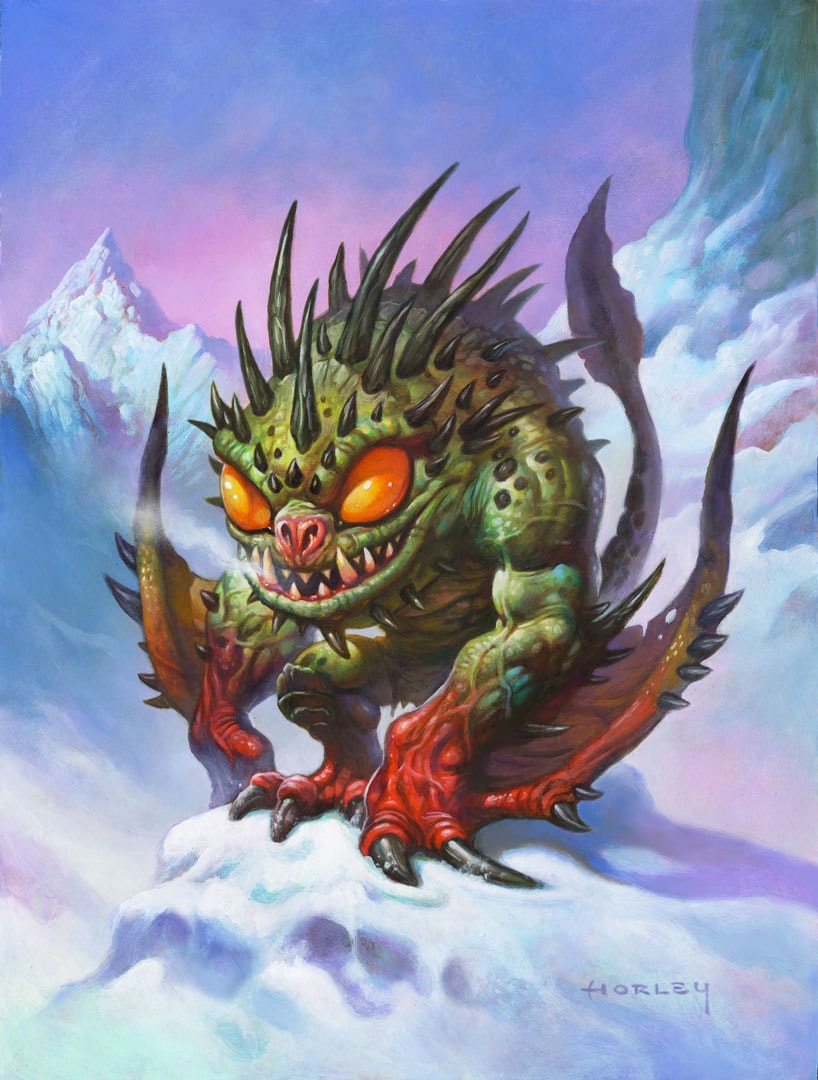
The guy also paints a mean Murloc and has shown a great range in his depictions of amphibious race over the years. “I designed Skyfin for Descent of Dragons! From a painting standpoint it was one of the rare ones, where it ended up being almost a hundred percent of what I wanted to achieve,” said Alex, “That almost never happens! It turned out nearly exactly the way I wanted it to look, so yeah, I have a soft spot for Skyfin. That's one of my favorite Murlocs and cards that I’ve done for Hearthstone overall."
Most recently, Alex masterminded the return of the Old Gods for Madness at the Darkmoon Faire. “I’m fortunate to have Jeremy Cranford as the Art Director I work with, he knows I like creepy monsters and horror things, Lovecraft-looking tentacles, fangs, and all that,” said Alex. “So, he decided to give me that task, to paint those big paintings! The challenge was to portray those characters from Warcraft, which are usually in very dark and dimly lit settings and translate them into the Hearthstone visual language and flavor. So, I thought ‘How I could make it something like…an Old Gods carnival ride?’ That's pretty much what I had in the back of my head when I was painting these things! They needed to be creepy looking like kaiju, but at the same time, have this palette that makes it look bright and almost happy. It was a challenge but a great experience, I had a lot of fun painting them and it was great to see how well received they were from fans around the world!”
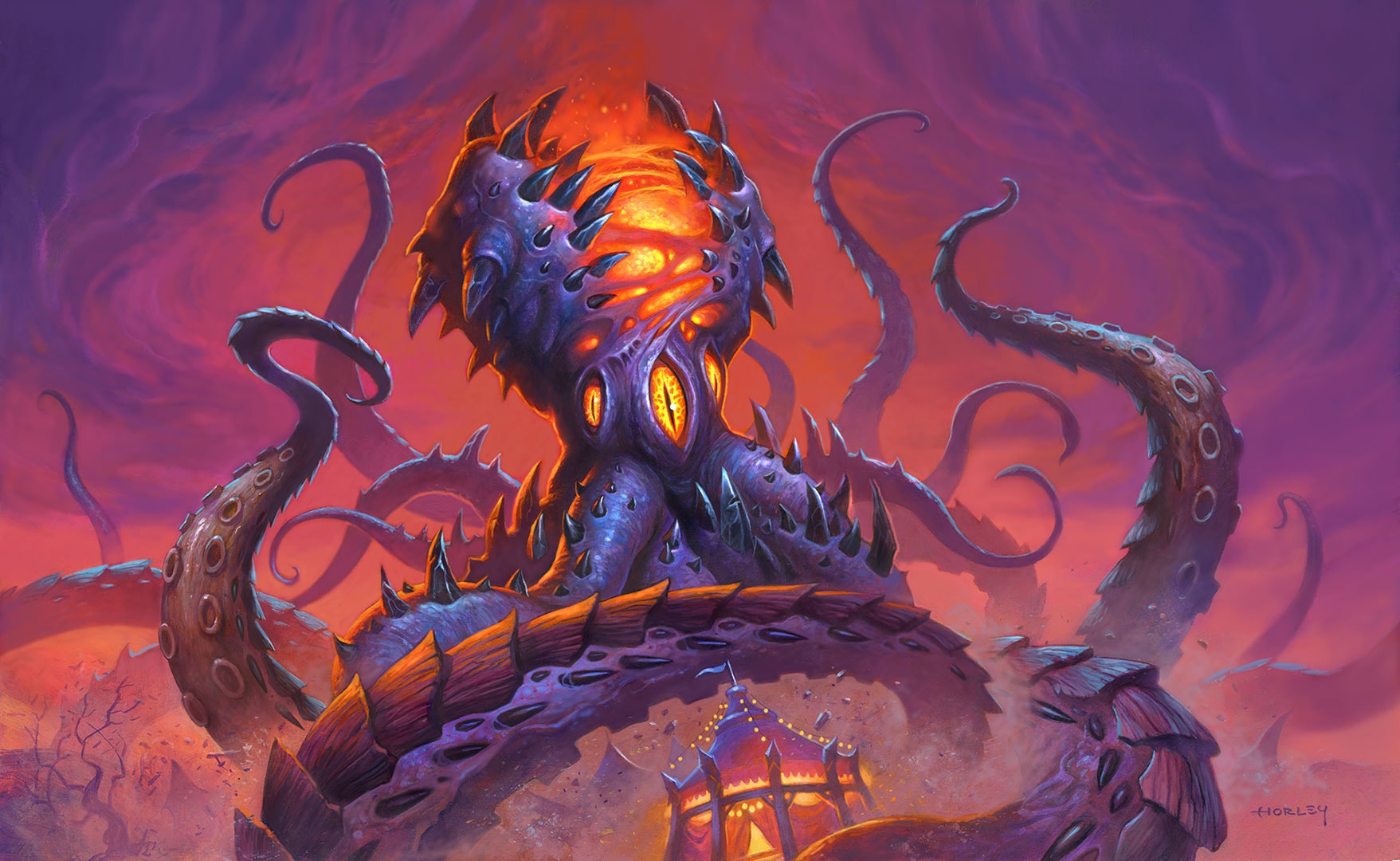
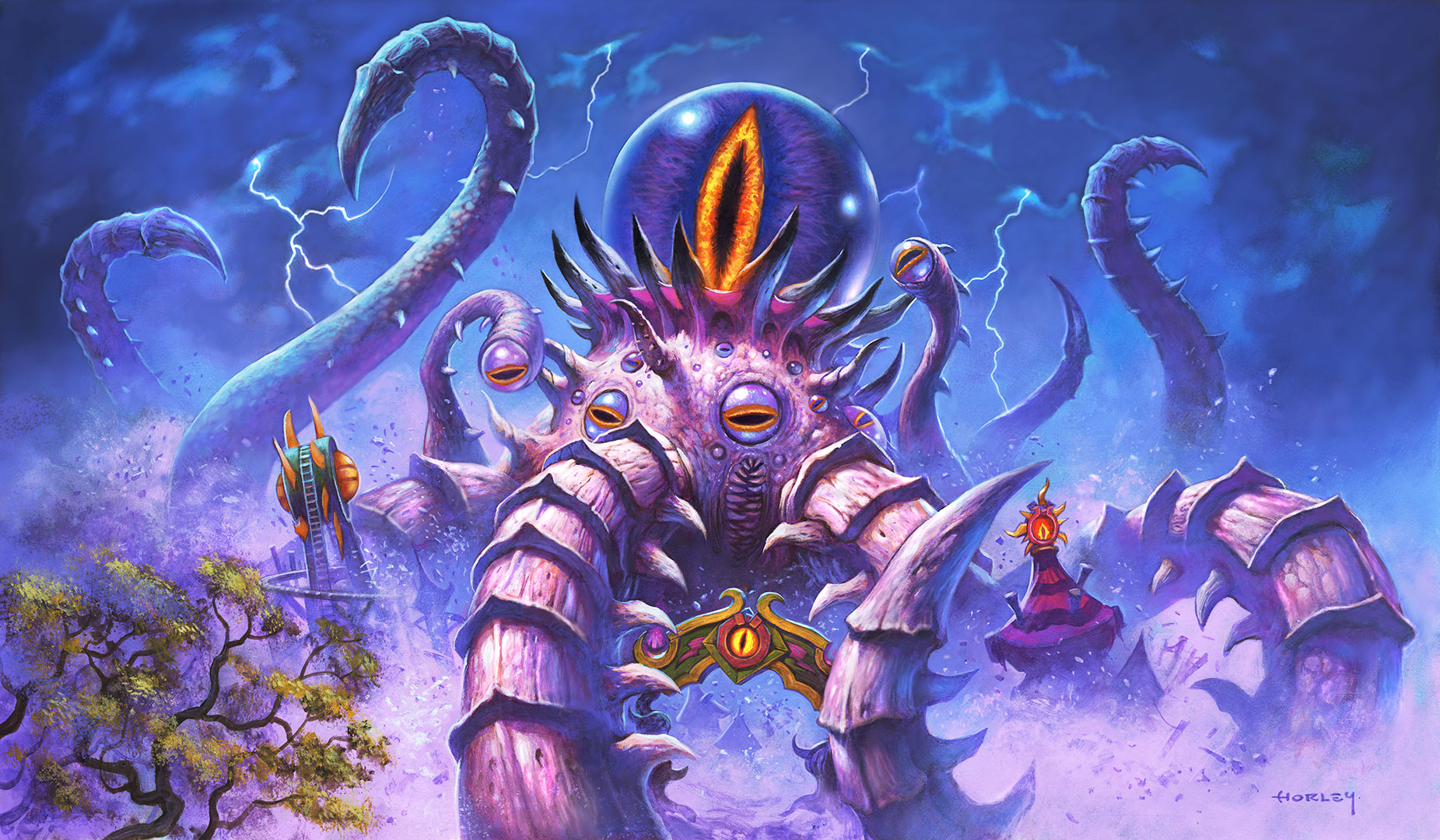
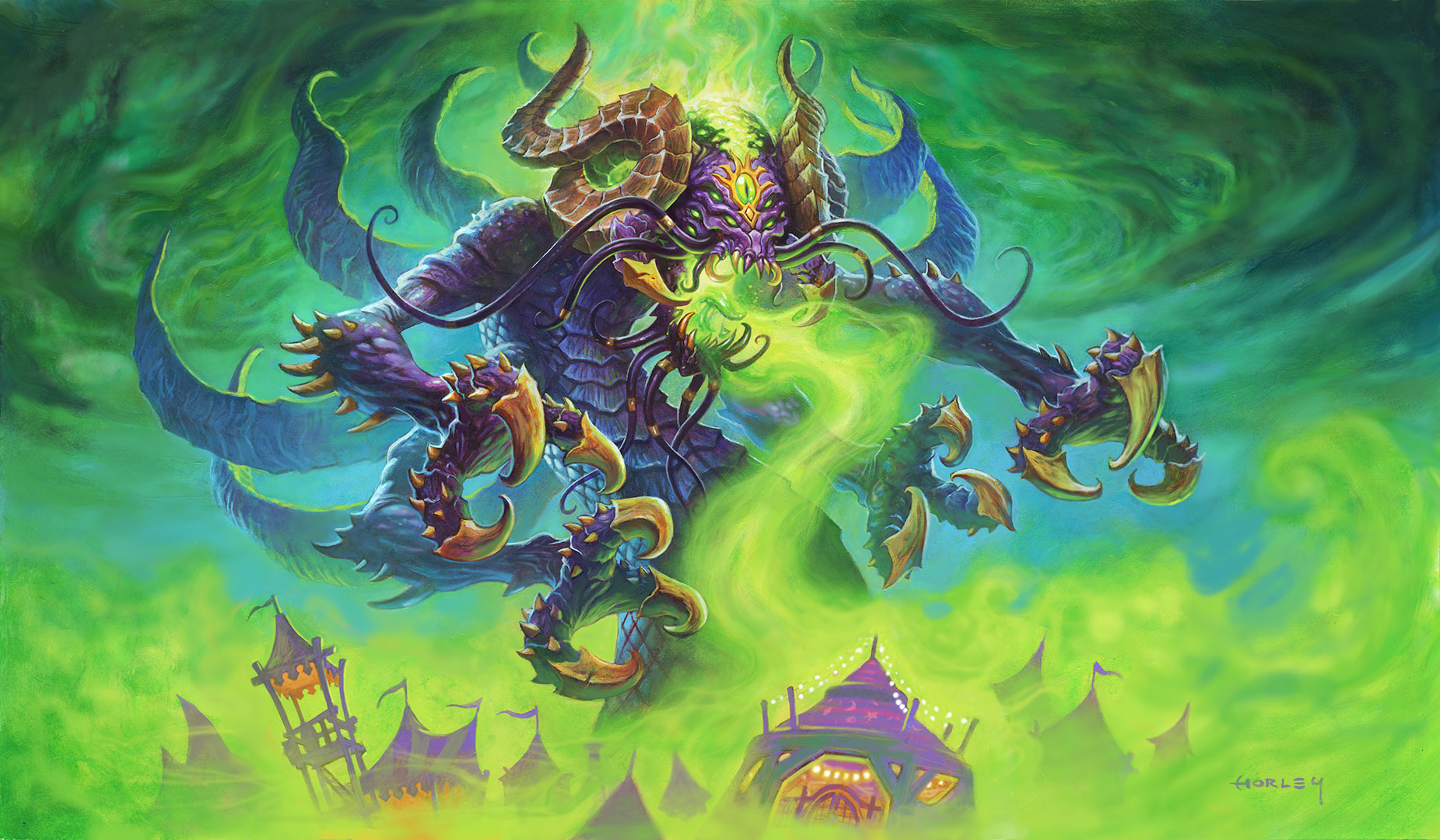
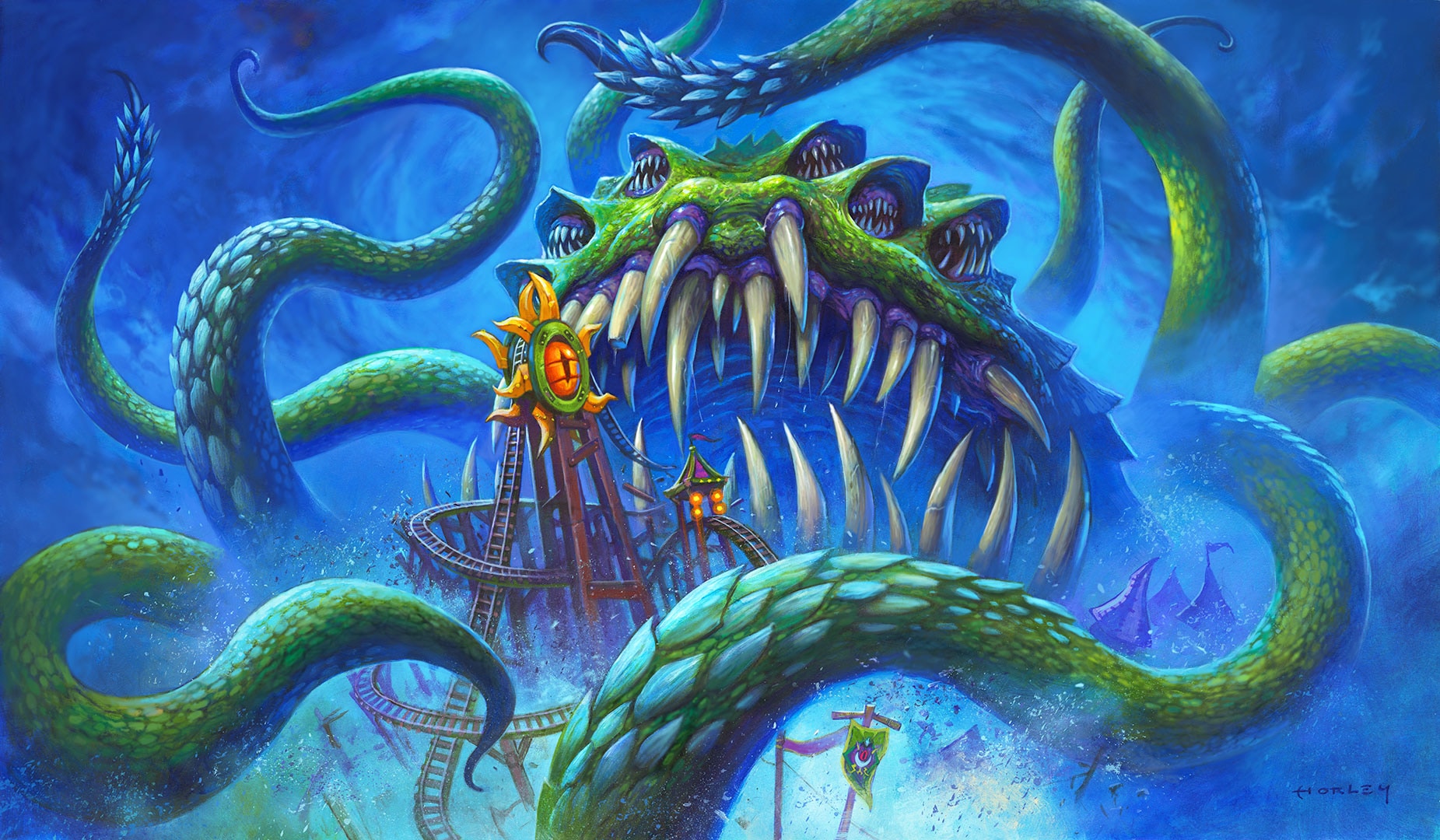
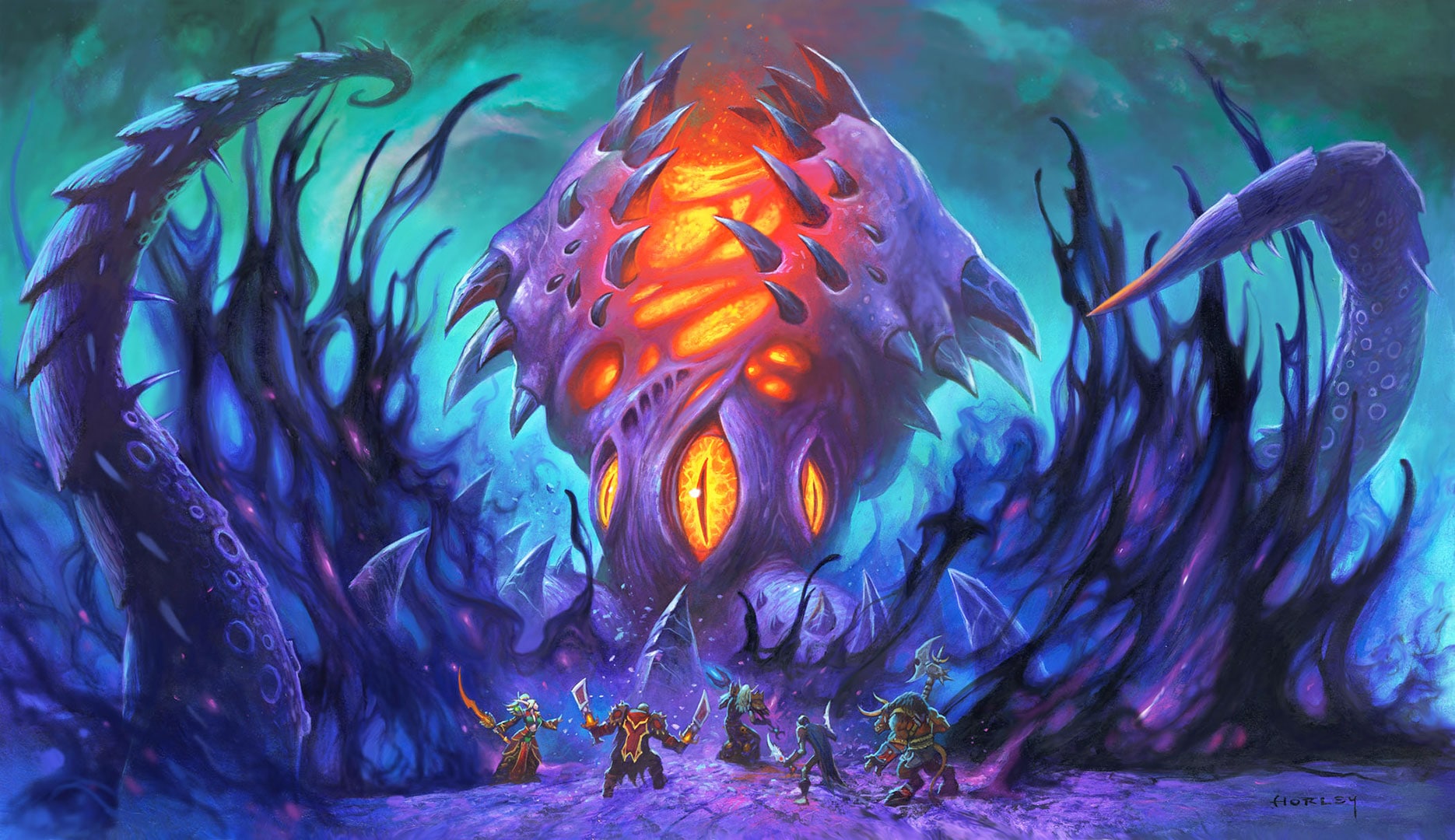
The Lessons
When it comes to imparting what he’s learned over the years to any budding artists out there, Alex does have a few insights. “Keep an open mind,” said Alex. “Don’t become complacent. You must keep studying and learning to continue to evolve in your work. As an artist you can have an artist ego sometimes, and sometimes it's healthy to just put that aside. Keep in mind that there is something to learn from everybody. I know there are some artists that want to work in video games, and they only look at video game art. That's pretty much putting yourself in a box! There is a lot of inspiration that can come from outside that box. It's going to help your art if you look at stuff outside your range of interest. You never know what you can learn from, or what could give you some inspiration.”
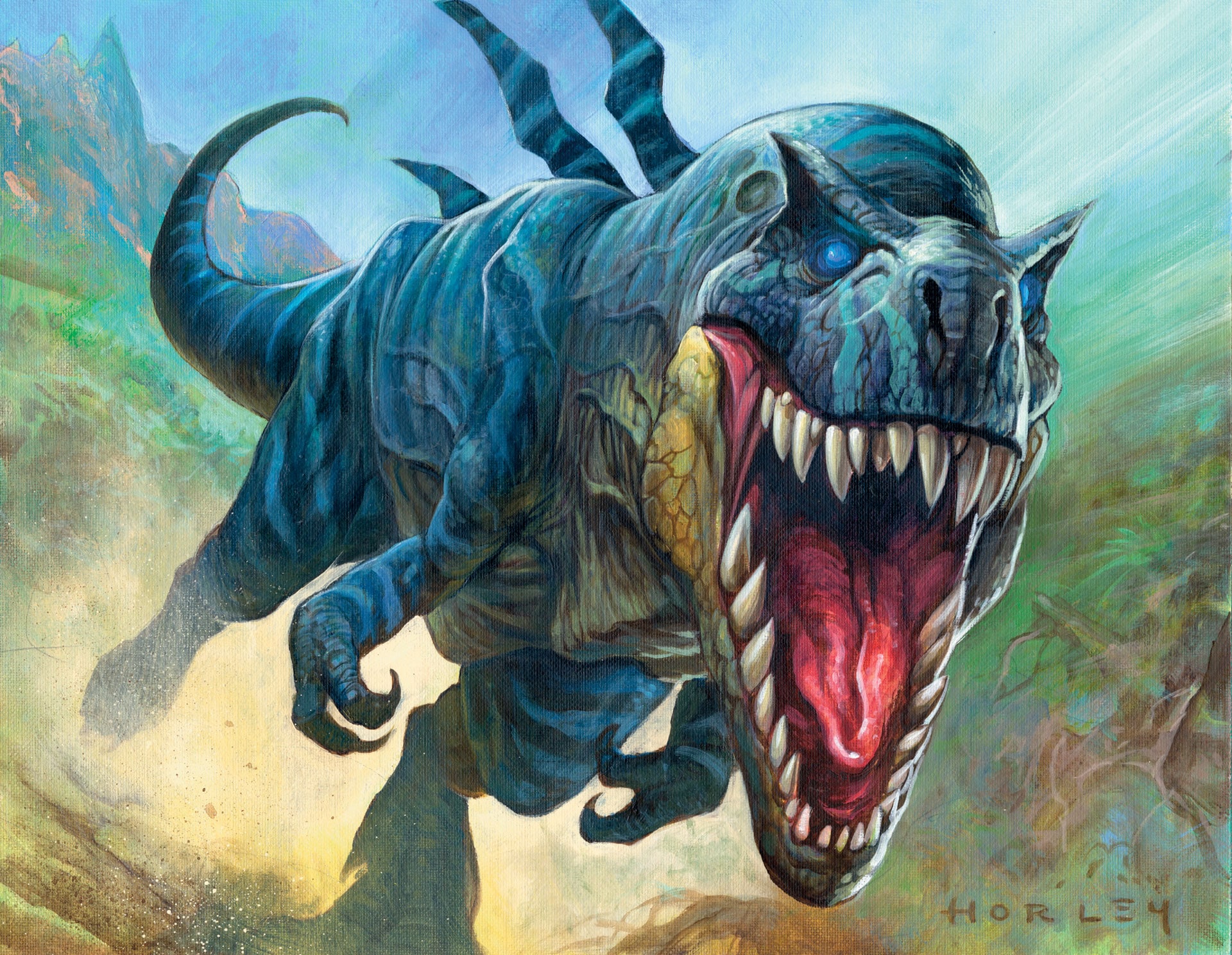
You can follow Alex Horley on Instagram @alexhorleyartofficial and Twitter @AlexHorleyArt! Sign up to receive an email notification when paintings, concept sketches, and limited-edition prints go on sale at www.alexhorleyart.com by sending a request email to [email protected].

